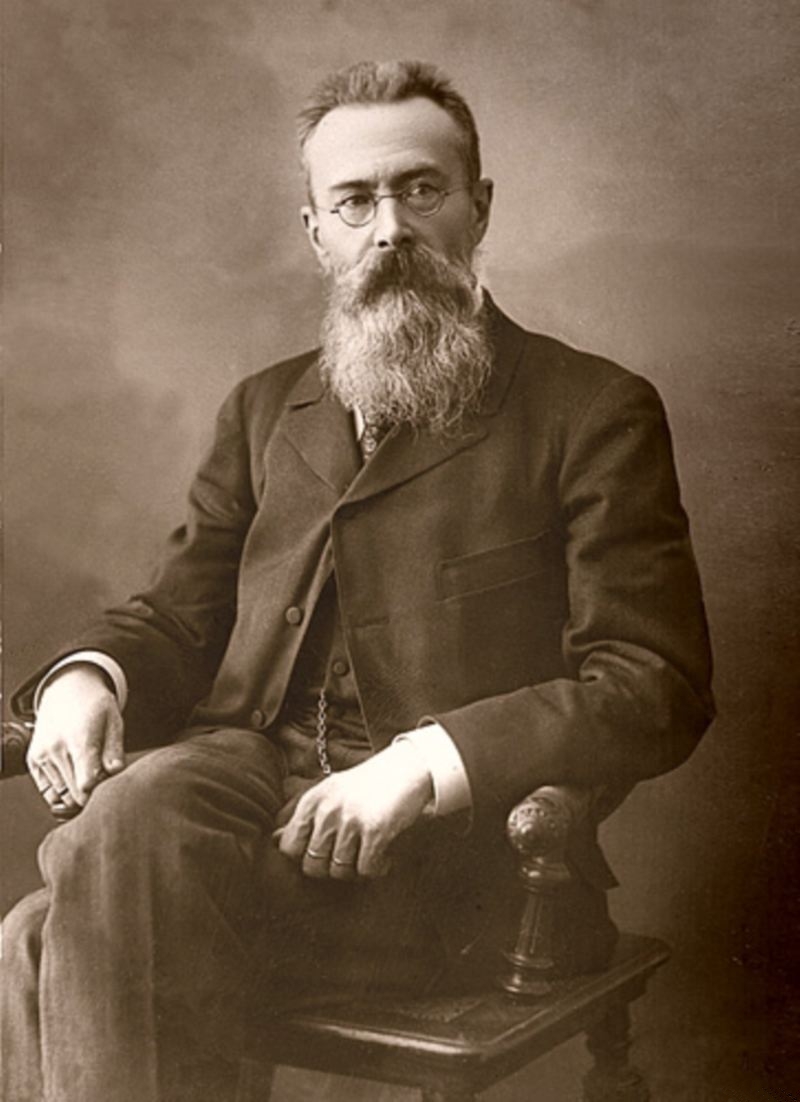In the grand orchestra of 19th-century Russian music, few voices resonate as powerfully as that of Nikolai Andreyevich Rimsky-Korsakov. Born on March 18, 1844, in Tikhvin, Russia, Rimsky-Korsakov’s journey from naval cadet to musical maestro is a testament to the transformative power of artistic passion.
As a young boy, Rimsky-Korsakov showed an early affinity for music, but family tradition steered him towards a career in the Imperial Russian Navy. He entered the Naval Cadet Corps in St. Petersburg at the age of 12, yet his love for music persisted. It was during his naval service that fate intervened, bringing him into contact with Mily Balakirev and the group of composers known as “The Mighty Five.” This encounter would change the course of his life and Russian music history.
Under Balakirev’s guidance, Rimsky-Korsakov began composing his first symphony while still serving in the navy. Completed in 1865, it became the first symphony written by a Russian composer, marking the beginning of a prolific and influential career. Despite his lack of formal musical training, Rimsky-Korsakov’s natural talent and dedication to his craft soon earned him a position as a professor of composition and orchestration at the St. Petersburg Conservatory in 1871.
Rimsky-Korsakov’s musical style is characterized by its rich orchestration, vivid storytelling, and incorporation of Russian folk melodies and themes. His operas, including “The Snow Maiden,” “Sadko,” and “The Tale of Tsar Saltan,” brought Russian folklore to life on the stage, captivating audiences with their magical narratives and lush soundscapes. Perhaps his most famous orchestral work, “Scheherazade,” showcases his mastery of orchestration and his ability to paint musical pictures, transporting listeners to the exotic world of “One Thousand and One Nights.”
Throughout his career, Rimsky-Korsakov composed fifteen operas, numerous symphonic works, and chamber pieces. His influence extended beyond his own compositions; he played a crucial role in preserving and promoting the works of his fellow Russian composers. He completed and orchestrated several unfinished works by Alexander Borodin, including the opera “Prince Igor,” and revised many of Modest Mussorgsky’s compositions, ensuring their survival and popularity.
As an educator, Rimsky-Korsakov shaped the next generation of Russian composers. His students included luminaries such as Igor Stravinsky and Sergei Prokofiev, and his textbook on orchestration remains a standard reference work to this day. His home in St. Petersburg became a gathering place for musicians and artists, fostering creativity and collaboration that would influence Russian music for decades to come.
Rimsky-Korsakov’s impact extended far beyond Russia’s borders. His innovative use of harmony and orchestration influenced composers around the world, including Claude Debussy and Maurice Ravel. His works continue to be performed regularly in concert halls and opera houses globally, captivating new generations of listeners with their timeless beauty and emotional depth.
In his personal life, Rimsky-Korsakov found a kindred spirit in Nadezhda Purgold, a talented pianist and composer whom he married in 1872. Their partnership was both personal and musical, with Nadezhda often assisting in the preparation of her husband’s scores and providing valuable feedback on his compositions.
As he aged, Rimsky-Korsakov became increasingly involved in political activism, supporting the 1905 Russian Revolution and standing up for students and faculty who were dismissed from the conservatory for their political views. This activism led to his own temporary dismissal, though he was later reinstated.
Nikolai Rimsky-Korsakov passed away on June 21, 1908, leaving behind a legacy that continues to enrich the world of classical music. His life’s work stands as a testament to the power of music to transcend boundaries, tell stories, and touch the human soul. From the shimmering orchestrations of “Scheherazade” to the fantastical world of his operas, Rimsky-Korsakov’s music continues to enchant and inspire, ensuring that his voice in the grand symphony of Russian music will never fade.


